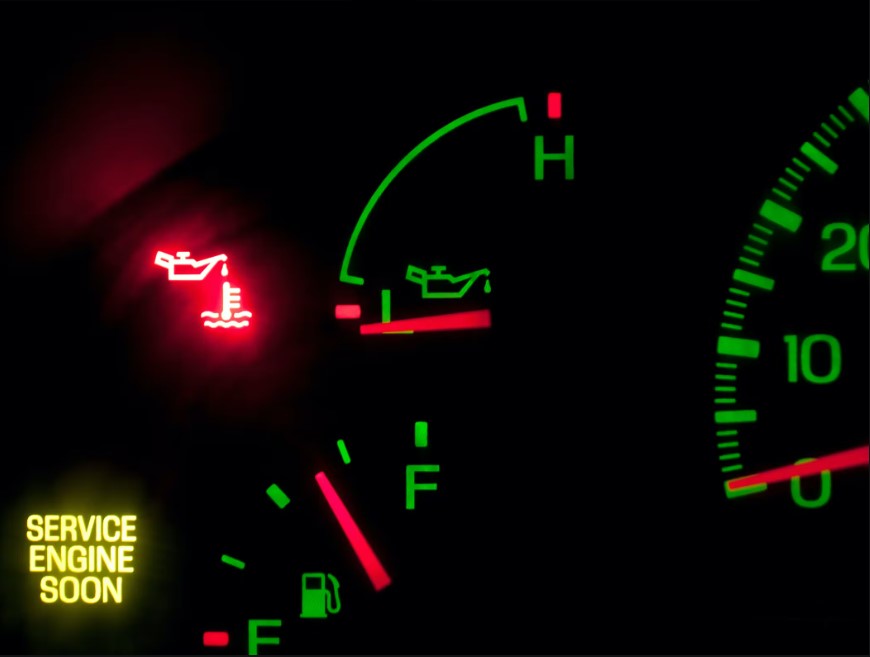Oil pressure is super important for your engine. If your car’s oil pressure light comes on or the gauge shows lower pressure than usual, it could mean something’s wrong.
It’s hard to tell how serious it is, so the safest thing is to stop driving.
This article will explain why your oil pressure might be low and what you can do to fix it.

Phot Courtesy: RymaxLubricants
What is Oil Pressure?
What Causes Low Oil Pressure in an Engine?
Low oil pressure in an engine can be caused by several factors. Some most common causes and potential solutions:
- Low Oil Level: If your engine oil levels are low, it can lead to low oil pressure. Engine oil dissipates over time, so if you haven’t changed or refilled the oil lately, you might be running low. Check the oil dipstick to see if the level is below the recommended mark.
- Old or Bad Oil: Oil has an expiration date of 2-5 years, but it can degrade faster if it has been sitting in your engine for a while. If your car hasn’t been driven in a few years, consider getting an oil change. Old oil may appear milky, hazy, and thick. Regular oil changes help maintain proper oil pressure.
- Damaged Oil Pump: The oil pump is responsible for circulating oil through the engine. If the pump is damaged or not functioning correctly, oil won’t flow properly. Signs of a faulty oil pump include overheating, grinding noises, and the oil pressure light coming on. Consult a mechanic to replace the oil pump.
- Incorrect Oil Viscosity: Using oil with the wrong viscosity can affect oil pressure. Make sure you’re using the oil recommended by your vehicle’s manufacturer. Different engines require specific oil grades (e.g., 5W20 or 10W30). Using the wrong type can lead to low oil pressure.
- Clogged Oil Filter or Pickup Tube: A clogged oil filter or pickup tube can restrict oil flow. Regularly changing the oil filter helps prevent this issue. If the pickup tube is blocked, oil won’t reach critical engine components, leading to low pressure.
- Worn Engine Components: Over time, engine wear and tear can cause gaps between moving parts. Insufficient oil pressure exacerbates this problem. Regular maintenance and timely repairs can prevent excessive wear.
No, driving with low oil pressure can really mess up your engine and make fixing it expensive.
The oil keeps everything moving smoothly, cools down the engine, and stops metal parts from rubbing together.
Can using thicker oil solve low oil pressure?
Yes, thicker oils can raise oil pressure, but they can also lower engine power.
Too much oil pressure can cause problems like bursting the oil filter, harming seals, or damaging bearings.
Conclusion
In conclusion, understanding the causes of low oil pressure in an engine is crucial for maintaining its health and longevity.
By identifying common culprits such as oil leaks, worn-out components, or inadequate oil levels, you can take proactive steps to prevent potential damage and costly repairs.
Whether it’s regular maintenance checks, addressing leaks promptly, or using the right type of oil, staying vigilant and proactive is key to ensuring optimal oil pressure and preserving your engine’s performance.
Remember, a well-maintained engine is a reliable one, so prioritize proper care to keep your vehicle running smoothly for miles to come.
Related Posts: